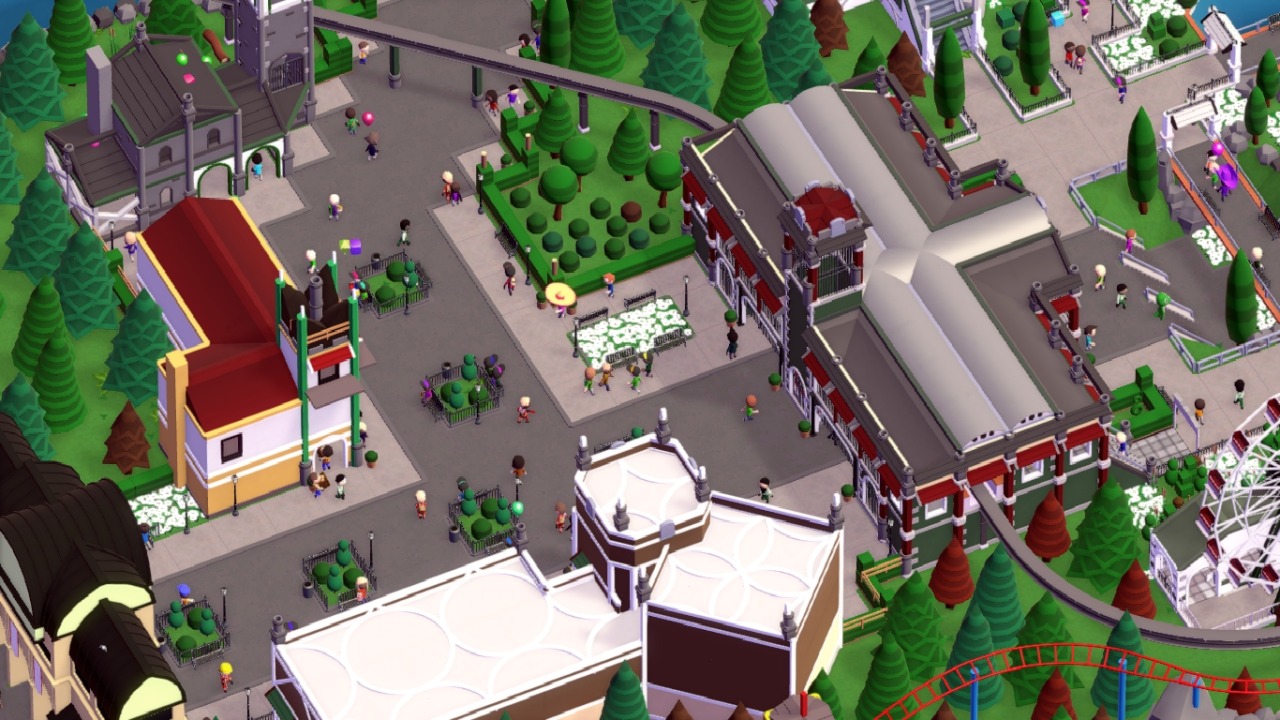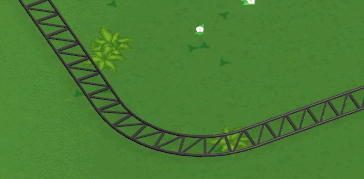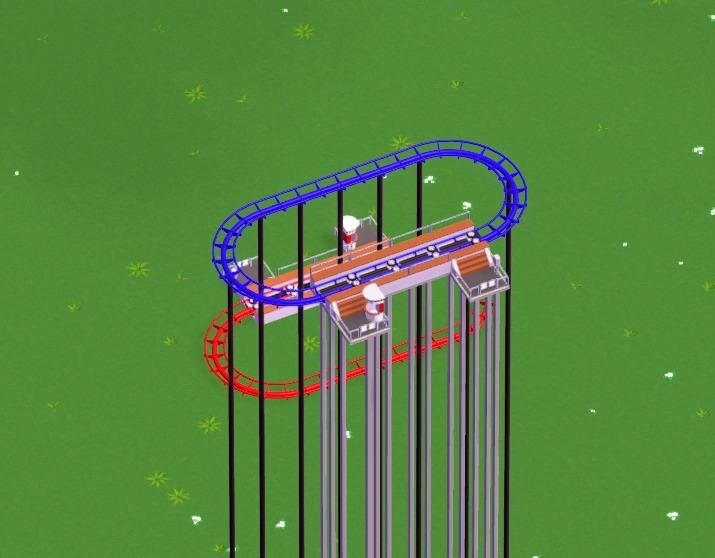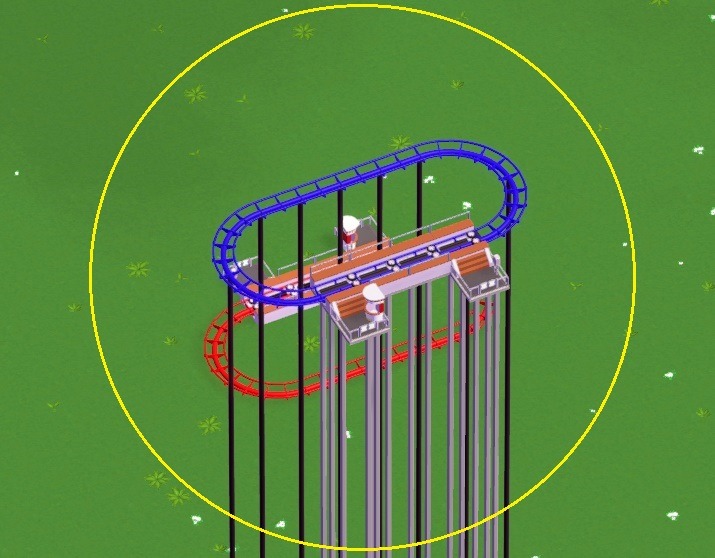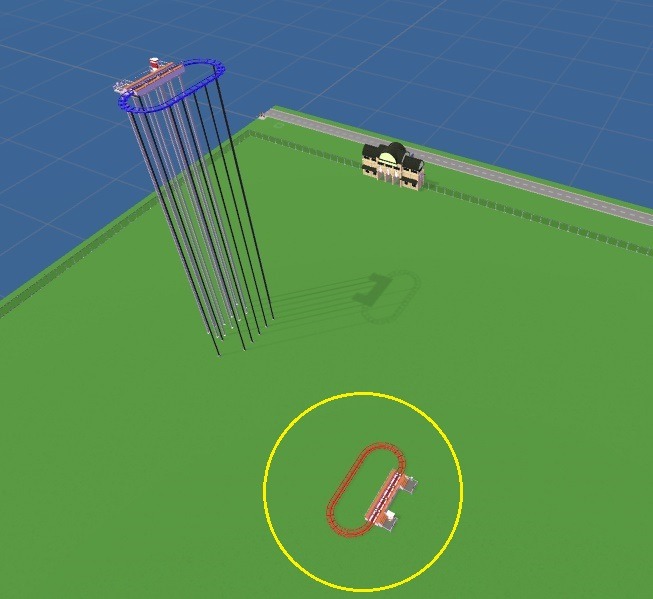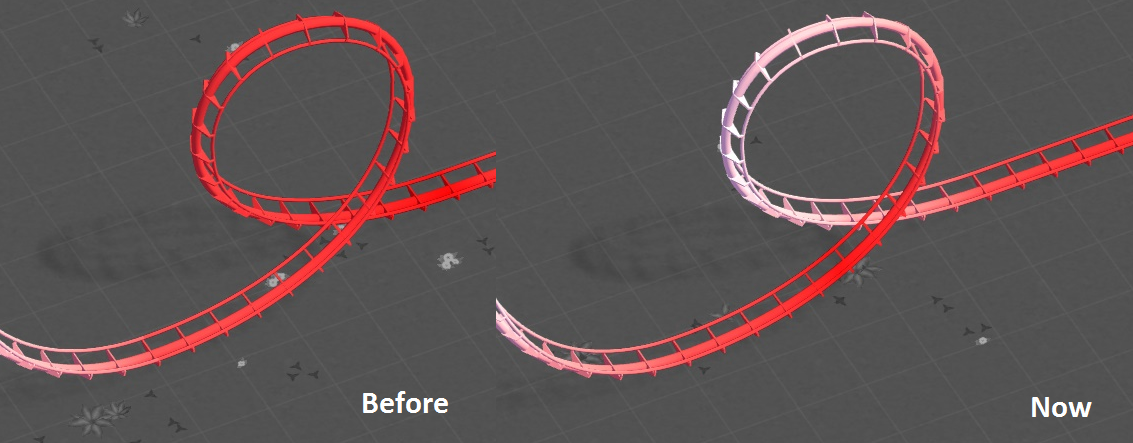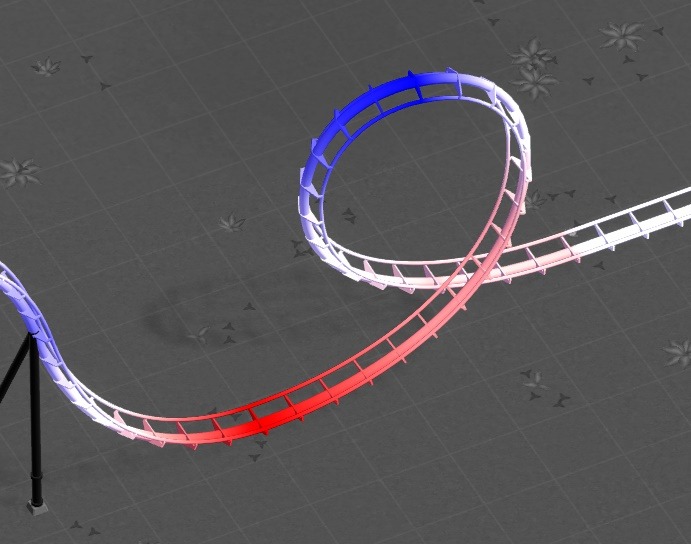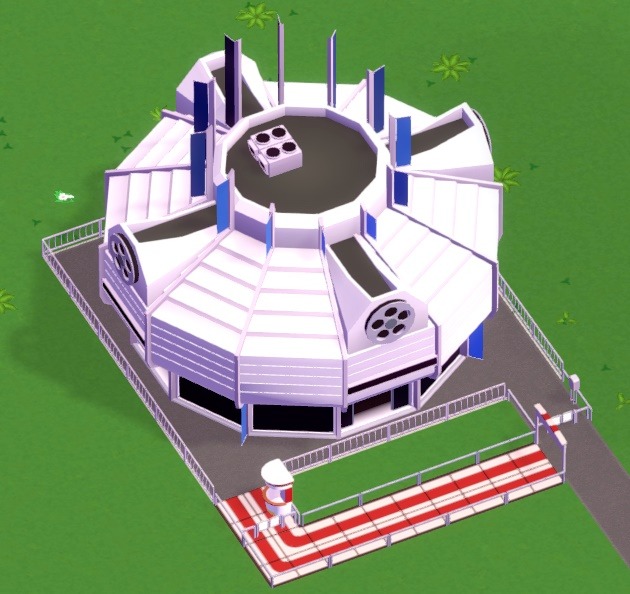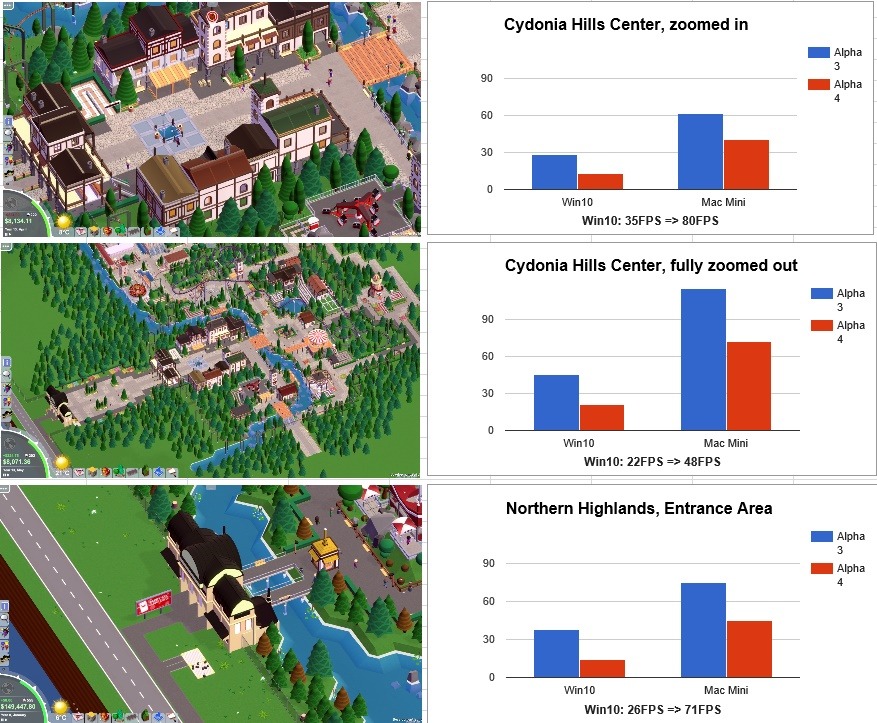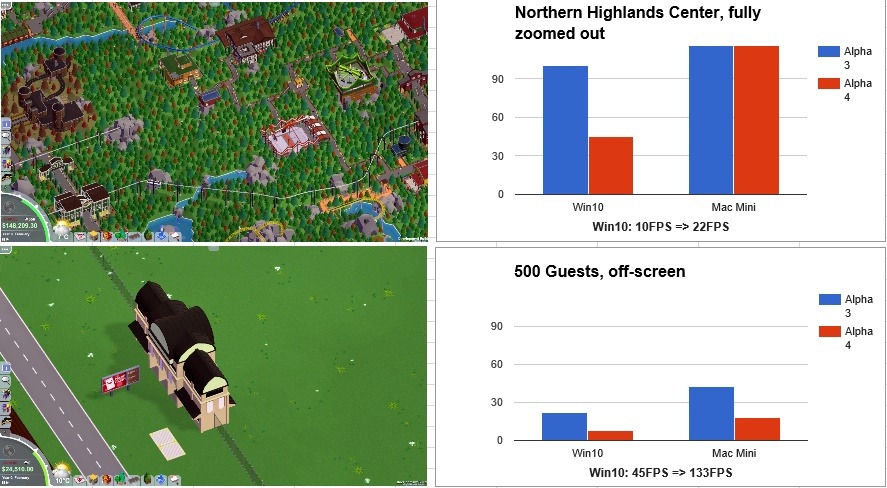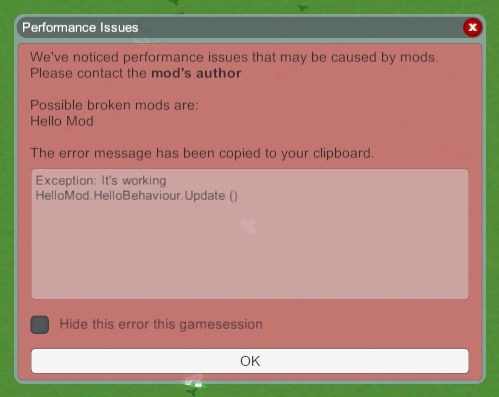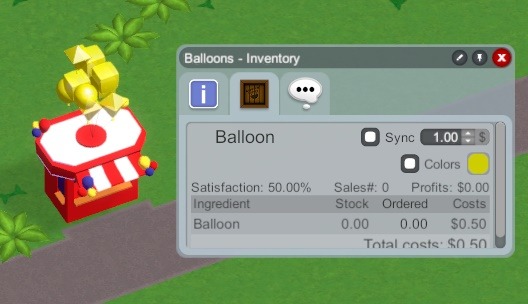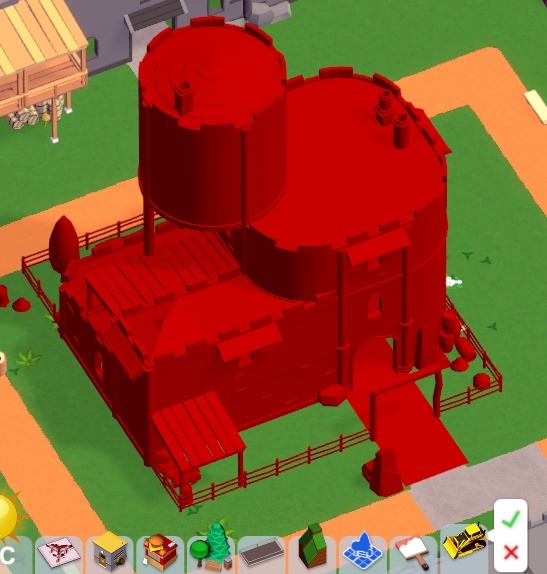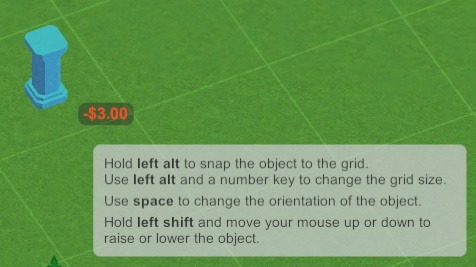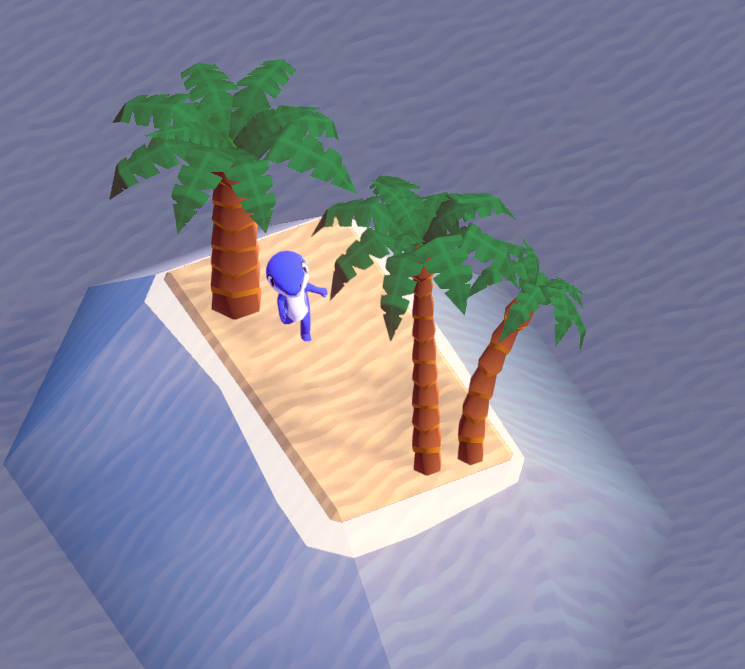We added a deco object pipette/cloning tool:
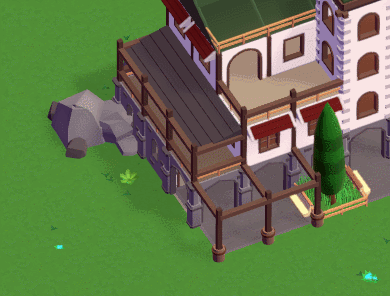
I think this one has been suggested a couple times, and it really speeds up building quite a bit. Simply select any deco object in the park and you can instantly build copies of it (including the same custom colors and custom size of the selected object). Pretty useful and not too complicated to implement, that are my favorite features :)
Between the Alpha 4 release and a patch for it we’ve started working on some bigger tasks that’ll likely keep us busy for the majority of this month. Luuk started with the scenario designer which will ultimately allow us to offer different starting parks with different settings and challenges instead of just the simple empty flat sandbox you all had to put up with for so long. That’ll come one step at a time though and the first task is just getting some UI working and allowing to create different terrain sizes :)
Meanwhile I’ve started working on something that’ll improve handling of trash and shop resources - you’ll certainly need that in bigger parks :)
More on both of these probably next week once there’s a bit more ready to show.
